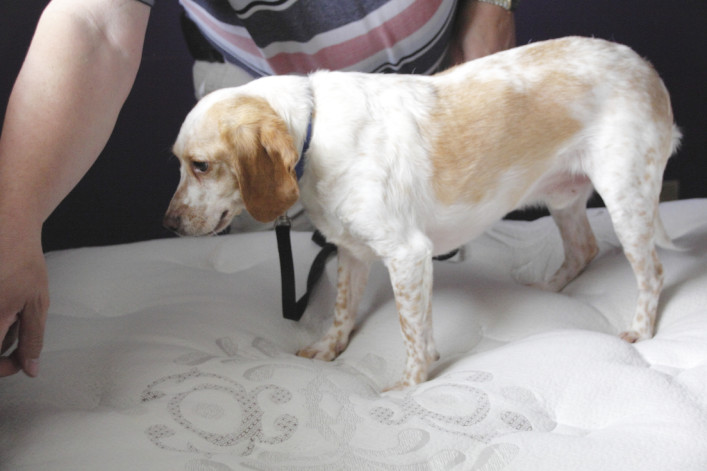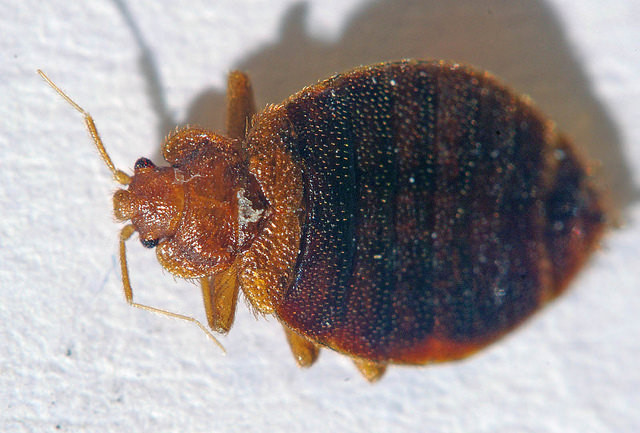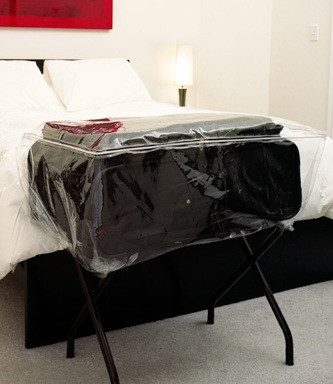Renters: Know your bedbug rights

iStock
Bedbugs are a huge, and hugely traumatizing issue in New York City. And despite laws that have been enacted to protect tenants from the sky-high costs of dealing with the bugs, the problem pops up in the most intimate of places: your clothes, your books, your bed.
The issue is even more complicated when you're a tenant, since it's not your apartment to maintain.
[This story was first published in July 2015, and was updated in 2017.]
Here's what every renter facing an infestation should know:
Your rights as a renter
In recent years, laws have been passed to protect renters from some of the fallout of bedbug infestations. In 2010, the city passed a law mandating that new residential tenants in be given a one-year bedbug infestation history for the individual unit and the building. In May of this year, the city passed another law requiring owners to file buildings' bedbug histories with the Department of Housing Preservation and Development, and to post the histories in a prominent place in a given building, or distribute them to tenants upon signing a new lease or a lease renewal. The law also requires HPD to post the history on its website. It went into effect this week.
The right to a bedbug-free environment is included in the city's Administrative Code, which names bedbugs in the list of insects a landlord is legally obligated to eradicate. Also, HPD lists bedbugs as a Class B violation, meaning that they are considered hazardous and must be removed by the landlord within 30 days.
Some caveats
"Landlords are required by law to eliminate vermin. Unfortunately, the law does not specify how they must do this," says Sam Himmelstein, a lawyer with Himmelstein McConnell Gribben Donoghue & Joseph (a Brick sponsor).
Usually the landlord will, indeed, pay for and send in an exterminator, but sometimes the exterminator cuts corners on quality. Actually eradicating bed bugs requires preparation (furniture must be covered, clothes dried on high heat), as well as follow-up, which some landlords pay for, while others don't.
Richard Kane, founder of Bed Bug Pest Prep, a company that prepares apartments for extermination, says that about 90 percent of the time the people paying him are tenants, not landlords, because his is considered an "elective service." It's usually only the very high-end management companies that offer to pay for preparation services, he explains.
What's more, rather than just treating an apartment, "exterminators should put barrier of pesticides around it so bugs don't migrate into nearby places," Kane says. They often don't.
There are limitations when it comes to bedbug disclosure rules, too. Not all tenants know that landlords have to disclose bedbug history, and they may not ask to see the history. Also, most times landlords will include a rider with the building's bedbug history with a lease. But if you've gotten all the way to a lease signing, you may be too far along to feel like pulling out of a rental.
"There's no real penalty for not disclosing the information," Himmelstein says. "There are no real teeth to the legislation."
What you should do
Before you rent
One thing that any prospective tenant can do is go on the HPD's website and check an address for bedbug violations and, once the website is updated to comply with the new law, the full bedbug history.
"If you see bedbugs in a building, you might want to avoid living there," Himmelstein says.
The Bedbug Registry is another good resource.
If you're already a renter and find, or suspect, an infestation
"Unless the landlord is cooperative, you may want to hire your own bedbug expert to do an assessment and tell you what's needed," Himmelstein says. Many people choose to hire a bug-sniffing dog to confirm an infestation when they've seen bugs or bites, but Kane warns that these dogs will sometimes find false positives.
If your landlord won't pay for any or all of your bedbug extermination needs, you may want to consider consulting a tenant lawyer.
"People need to understand what the law is and what rights they do and don't have," Himmelstein says.
Among a tenant's options are to start what is known as an HP proceeding in Housing Court to force the landlord to exterminate; withhold rent and seek a rent abatement and an order to correct the problem (but this could get you in the infamous tenant blacklist); and/or, if you are rent stabilized, file a reduction of services complaint with the Division of Housing and Community Renewal seeking an order to perform the extermination, and a rent rollback and freeze until it is done.
Unfortunately, retaining a private attorney in these cases may not be cost-effective. One other problem Himmelstein says his firm frequently encounters is that bedbug infestation often affects multiple apartments. If all the tenants whose apartments are infested don’t provide access to the landlord, the problem won't go away. Tenants sometimes don’t provide access because they are fearful of the landlord or sensitive about the use of pesticides. Also, if there is a hoarder in the building, that apartment might be badly infested, and that tenant might refuse access for fear that the landlord will discover the clutter and evict him.
Of course, how much you decide to fight will also depend on how much time you have left on your lease.
"If it's not rent stabilized, you may just want to pay for the bedbug removal services yourself and leave at the end of your lease," Himmelstein says. "But if you are rent stabilized, or plan to stay in the apartment for a while, you may want to invest in the fight."
"A lot of people don't understand that if you walk out of your lease early, the landlord could sue you," he adds. "Your defense could be you were constructively evicted due to bedbugs, but you should consult with a landlord-tenant lawyer to make sure you're making wise choices."
You Might Also Like


























